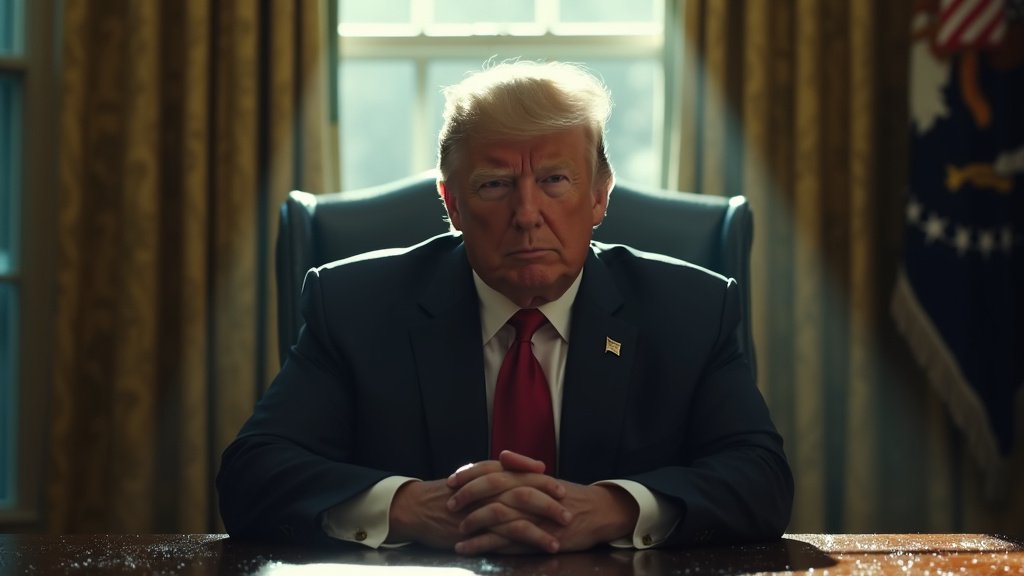Washington D.C. – March 10, 2025, unfolded as a day marked by significant executive actions and escalating tensions, both domestically and on the global stage, centered around the administration of President Trump. From internal cabinet disputes over tech industry influence to a notable shift in U.S. foreign policy concerning Ukraine amidst intensified Russian aggression, and confrontations with academic institutions and cultural bodies, the day underscored the administration’s assertive posture across multiple fronts.
White House Dynamics and Executive Authority
Reports on March 10 indicated that President Trump sought to curb the influence of tech entrepreneur Elon Musk. This development reportedly followed a cabinet meeting where concerns regarding Musk’s actions were voiced by senior officials.
Secretary of State Marco Rubio and Transportation Secretary Shawn Duffy were among those who reportedly criticized staff reductions within departments led by individuals associated with Musk. Secretary Duffy specifically highlighted the challenges of dealing with “multiple plane crashes” while simultaneously facing pressure to dismiss air traffic controllers, underscoring the potential public safety implications of personnel cuts.
In a separate move utilizing executive authority, President Trump signed an executive order revoking security clearances for employees at the law firm Perkins Coie. This action mirrored a similar order previously issued targeting individuals associated with the law firm Covington, signaling a pattern of the administration employing executive orders to target specific professional groups or organizations.
Escalation in Ukraine and U.S. Policy Shift
Internationally, March 10 saw a significant escalation of hostilities in Ukraine. Russia launched major air attacks across the country, with intense strikes reported in the Donetsk region.
The attacks resulted in widespread destruction, including damage to critical energy infrastructure, and tragically, led to the deaths of at least two dozen people. These strikes occurred in the aftermath of the United States, under President Trump, reportedly halting key forms of support for Kyiv, including military aid, intelligence sharing, and satellite imagery sharing.
Adding to the geopolitical complexity, President Trump reportedly defended the escalated attacks carried out by Russian President Vladimir Putin, a stance that drew considerable attention and commentary from international observers and allies.
Domestic Security, Academia, and Protests
Domestically, the Department of Homeland Security (DHS) disclosed information regarding an arrestee identified as Khalil. According to the DHS statement, Khalil was found to have links to Hamas-aligned activities, highlighting ongoing concerns related to national security.
Further illustrating the administration’s assertive domestic agenda, the Trump administration withdrew $400 million in federal grants and contracts from Columbia University. The administration cited the university’s alleged failure to adequately address what it termed “anti-semitic harassment” on campus as the basis for this significant financial withdrawal.
Reports from Columbia University, however, indicated that the institution had reportedly targeted Palestinian rights protesters and involved law enforcement in managing campus demonstrations, presenting a complex picture of the situation regarding free speech and safety on university grounds.
Meanwhile, in the legal academic sphere, the dean of Georgetown University’s law school publicly rejected a warning from a federal prosecutor regarding the hiring of Georgetown students. The nature of the warning was not fully detailed in initial reports, but the dean’s public defiance indicated a potential point of tension between federal authorities and academic institutions.
March 10 also saw public protest at the Kennedy Center in Washington D.C. Demonstrators gathered to oppose President Trump’s effective takeover of the renowned cultural institution. This takeover reportedly involved the firing of the center’s president, the replacement of its board, and President Trump naming himself chairman.
The protests, which included participation from drag performers such as Lord Henry, voiced clear demands. Protesters called for the restoration of queer programming at the Kennedy Center and expressed opposition to efforts they perceive as aimed at criminalizing gender nonconformity, intertwining cultural expression with political resistance.
Taken together, the events of March 10, 2025, painted a picture of a day filled with significant political maneuvers, shifts in international relations, and palpable domestic tensions playing out across various sectors of American society.










